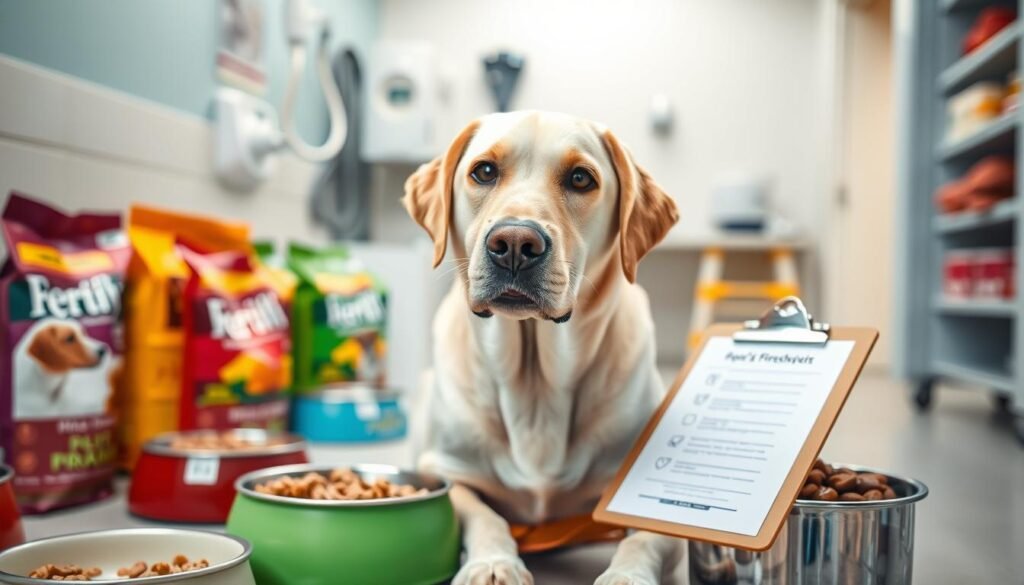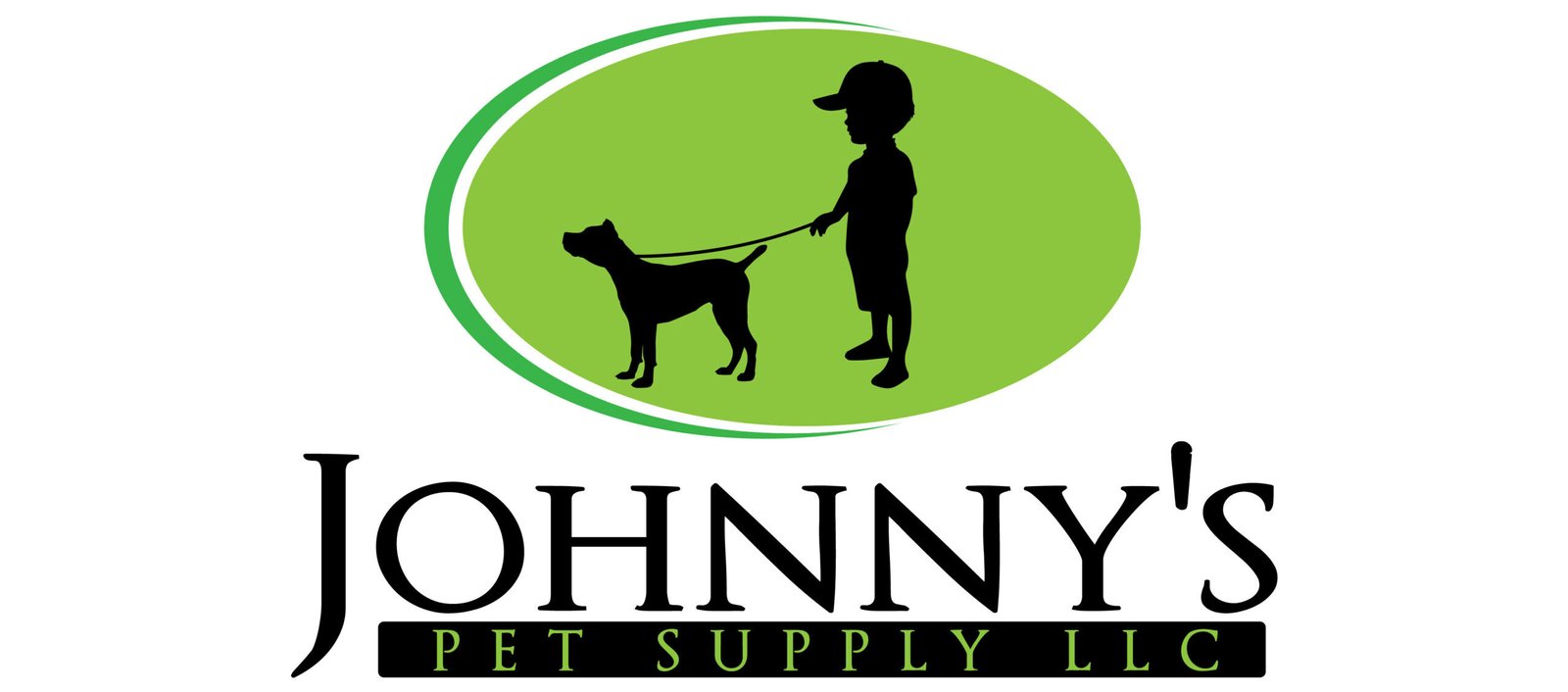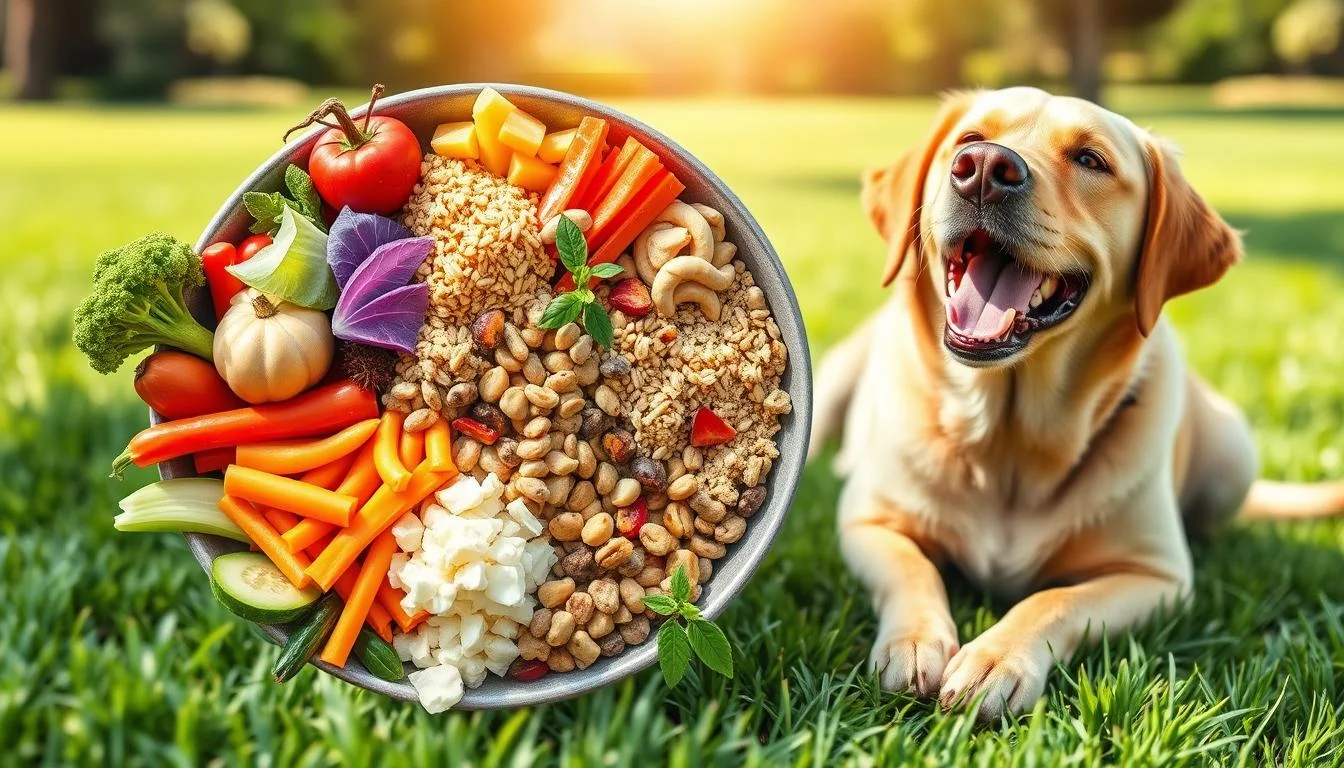How to avoid food allergies in Labrador Retrievers
Labrador Retrievers are a favorite pet, but they can get food allergies. These allergies can come from proteins like chicken, beef, dairy, soy, and eggs. Signs include itchy skin, paws, and digestive problems, which can really affect their health.
But, there’s good news. You can help your Labrador stay healthy by avoiding these allergies. With the right diet, your Lab can stay happy and healthy.
Key Takeaways
- Labrador Retrievers are prone to food allergies, often caused by common protein sources like chicken, beef, dairy, and soy.
- Symptoms of food allergies in Labs include itchy skin, paws, ears, digestive issues, and behavioral changes.
- Diagnosing food allergies requires an elimination diet trial lasting 8-12 weeks, followed by a food challenge.
- Treatment involves avoiding allergens and may include medication for severe reactions.
- Preventive measures include using hypoallergenic diets and limiting treats and table scraps.
Understanding Food Allergies in Labrador Retrievers
Labrador Retrievers are loved by many, but they can face food allergies. These allergies come from common foods and cause symptoms that affect their health. Knowing about food allergies in Labs helps us care for them better.
Common Food Allergens for Labs
Labrador Retrievers often react to dairy, beef, chicken, chicken eggs, soy, and wheat gluten. These foods can make their immune system overreact, leading to inflammation and irritation.
Signs and Symptoms of Food Allergies
Dogs with food allergies may show signs like itchy skin, paws, or ears, vomiting, diarrhea, hyperactivity, weight loss, lack of energy, and even aggression. These symptoms mean they might have a food allergy that needs attention.
Impact on Your Lab’s Health
Food allergies can really hurt a Labrador Retriever’s health. They can cause discomfort, skin infections, and digestive problems. When the immune system reacts too strongly to certain foods, it leads to inflammation and irritation. It’s important to manage these allergies to keep your Lab healthy.
Knowing about common allergens, recognizing symptoms, and understanding their health impact helps. You can try limited ingredient dog food or novel protein dog food to find allergy-free treats. This can make your Labrador Retriever happier and healthier.

“Food allergies are one of the most common allergies or hypersensitivities known to affect dogs.”
How to avoid food allergies in Labrador Retrievers
Labrador Retrievers are loved by many families. But, they can get food allergies. It’s important to feed them a special diet to keep them healthy.
Feeding a hypoallergenic diet is key. Your vet can help pick the best food for your Lab. This diet helps avoid allergies.
There are different types of diets. A veterinary hydrolyzed protein diet breaks down proteins into smaller pieces. Novel protein diets use new proteins like venison or duck. If your vet suggests a homemade diet, work with a nutritionist to make sure it’s balanced.
- Avoid giving your Lab table scraps, flavored vitamins, and treats not approved by your vet as part of the hypoallergenic diet.
- Use stainless steel or glass food and water bowls to prevent contact allergies.
- Regularly groom your Lab and keep your home clean to reduce exposure to environmental allergens.
Talk to your vet about a long-term plan for your Lab’s food allergies. The right diet and lifestyle can make your Lab happy and healthy.
“The most common food allergens for dogs are beef, dairy, chicken, wheat, and lamb. Proper diet and management are crucial to keeping your Lab’s skin and digestive system healthy.”

Diagnosing Food Allergies Through Elimination Trials
Finding out what causes your Labrador Retriever’s food allergies takes careful steps. You’ll need to switch to a special diet for 8-12 weeks. This means avoiding all other foods, including treats and flavored medicines.
The 8-12 Week Elimination Process
Labrador Retrievers might need more time to show how they react to new foods. Sometimes, it can take up to three months. It’s important to be patient and stick to the diet plan.
Once your dog starts to feel better, you can move on to the next step.
Food Challenge Testing
The next step is to try the original diet again to see how your dog reacts. If your dog shows signs of an allergy again within a week, it’s confirmed. Tests like blood and saliva tests aren’t reliable for diagnosing food allergies in dogs.
Working with Your Veterinarian
It’s important to work with your vet during this time. They might suggest extra tests to find out what’s causing the allergy. Your vet can also help pick the right special diet for your dog.
“A diet trial lasting 8 weeks can diagnose about 95% of food allergic dogs, while a trial lasting only 4 weeks would diagnose around half of them.”
Being patient and consistent is crucial when figuring out dog food allergies in your Labrador Retriever. By sticking to the diet plan and working with your vet, you can find out what’s causing the allergies. Then, you can create a good pet nutrition plan to help manage your dog’s canine allergies for the long term.

Treatment Options and Diet Management
Managing food allergies in your Labrador Retriever means sticking to a strict diet. Your vet might recommend hydrolyzed protein diets, novel protein diets, or home-prepared meals. These diets are crucial and must be the only food your dog eats for life.
During severe allergy attacks, your dog might need medication. It’s important to see your vet regularly. This helps keep an eye on your dog’s health and makes any needed changes to their treatment.
Be careful with over-the-counter dog foods labeled as “limited ingredient.” They might not be as safe as vet-approved diets. Adding probiotics to your dog’s diet can also help with digestion. But, always talk to your vet before making any big changes to your dog’s food.
By working with your vet, you can create a plan that meets your Labrador’s specific needs. This plan will help control their food allergies effectively.

